Biden’s West Asia tour highlights Washington’s ‘policy failures’ in region: Article
US President Joe Biden’s recent four-day trip to West Asia has highlighted “policy failures” of the United States in the region, an article says.
The 79-year-old US leader arrived in the Israeli-occupied territories on Wednesday, and met with the Israeli officials, including Prime Minister Yair Lapid, as well as with Palestinian Authority President Mahmoud Abbas on Friday.
Biden, later on Friday, traveled to Saudi Arabia, his final destination, to hold talks with Crown Prince Mohammed bin Salman - Saudi Arabia's de facto ruler, who is popularly known as MBS - and other high-ranking officials.
Biden’s first trip to the Middle East as the US president, according to a new article, concluded with almost no tangible achievements, vividly showcasing “policy failures” of the White House in the region.
In an article - titled “Biden Caters to Autocrats and Draws Battle Lines in the Middle East” – published in the American weekly magazine The New Yorker on Saturday, writer and columnist Robin Wright said that although Biden was successful last month in his bid to expand NATO and mobilize the West against Russian President Vladimir Putin for his ongoing war in Ukraine, the US president made little progress in resetting relations with the Palestinians.
She said Biden even failed to take concrete steps to reopen the US consulate for Palestinians in East al-Quds, which was closed by former American president Donald Trump, in 2019, or the Palestine Liberation Organization (PLO)’s diplomatic mission in Washington.
“The divide was sufficiently deep that Biden and Abbas could not issue a joint statement. The peace process is virtually dead. He did promise a hundred million dollars in aid for Palestinian hospitals in East Jerusalem, subject to congressional approval,” Wright said in her article, adding that there was little movement, however, on either the process or substance of peace.
As for his final destination - Saudi Arabia - Biden did an almost U-turn on his stance against MBS, who is accused of, according to a CIA report, ordering the gruesome killing of Saudi journalist Jamal Khashoggi in Turkey some four years ago.
Khashoggi, who was murdered and dismembered by a Saudi “hit squad” at the kingdom’s consulate in Istanbul on October 2, 2018, used to be a vocal critic of the Saudi regime and the crown prince Mohammed Bin Salman. Riyadh initially issued conflicting stories about the journo’s disappearance, but eventually claimed that the Washington Post columnist had been killed in a “rogue” operation.
At a Presidential debate, during the 2020 campaign, Biden declared that Khashoggi’s assassination was carried out “on the orders of the crown prince (MBS).” The US president, at the time, branded the current Saudi regime a “pariah” with “little” redeeming value, vowing to make the Saudis “pay the price.”
However, Biden ultimately decided that, for the sake of US interests, the White House needed to improve relations with the world's top oil exporter and Arab powerhouse and forgot about his vows to make the Arab kingdom a "pariah" on the global stage over the murder of Khashoggi.
“Biden’s motivation for the trip was partly to lobby oil-rich countries to alleviate the global energy crisis and bring down prices. In Jeddah, the President met with leaders of the six Gulf sheikhdoms and Iraq, which together pump millions of barrels of oil every day, plus Jordan and Egypt. In reality, even these mega-producers may not be able to do much,” Wright added in her article, stressing that Americans and Europeans should not expect a significant change in prices or supply any time soon.
The article went to say that Biden “won only small concessions” when he tried to normalize ties between Israel and Saudi Arabia, when he attempted to follow the path his predecessor, Trump, took, when Washington brokered normalizing relations between four Arab countries – including Bahrain and the United Arab Emirates (UAE) - with the occupying regime, the article said.
The gap - between the Israeli regime “and an autocratic monarchy that calls itself the guardian of two of Islam’s holiest sites—is still deep. And, to some critics, the links have few benefits,” Wright stated.
“Biden’s trip has solidified the shifting sands in the Middle East. For more than a half century, the region was singularly defined by the Arab-Israeli dispute. The goals, the alliances, the flash points, and the battle lines have all changed. Foreign policy inevitably evolves. Diplomacy is often overtaken by events on the ground. But Biden’s actions in the region may also have unwanted consequences,” the article concluded.
‘Ghost town’: 70% of Jabalia buildings destroyed by Israel
Mother’s Day: Sareh Javanmardi’s inspiring journey as Paralympic champion and mother
Russia downs over 40 Ukrainian drones as Putin vows 'destruction' on Kiev
VIDEO | Yemen: A bone in Israeli neck
D-8’s role in Iran’s economy after Cairo summit
China slams US as ‘war-addicted’ threat to global security
China ‘firmly opposes’ US military aid to Taiwan
VIDEO | Press TV's News Headlines


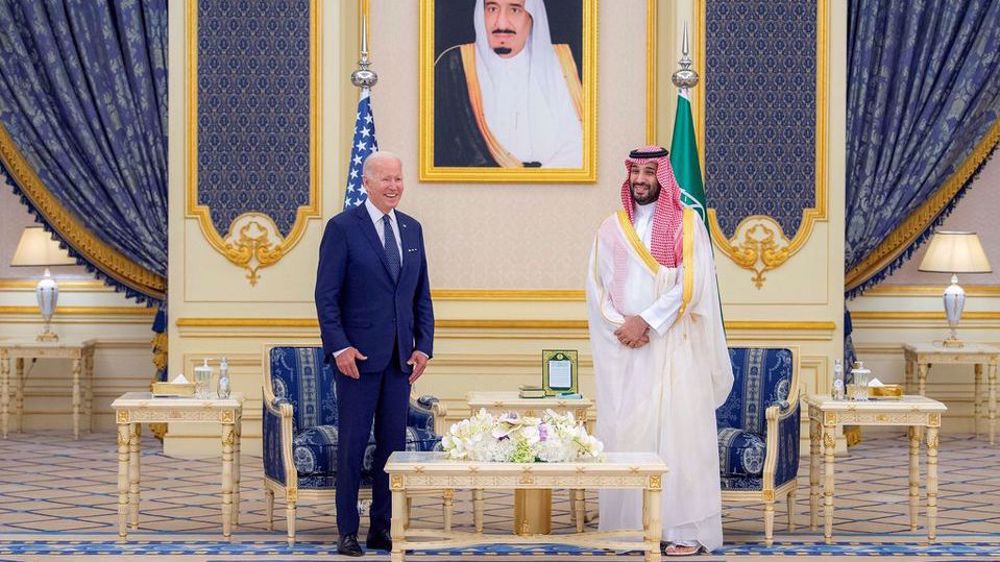
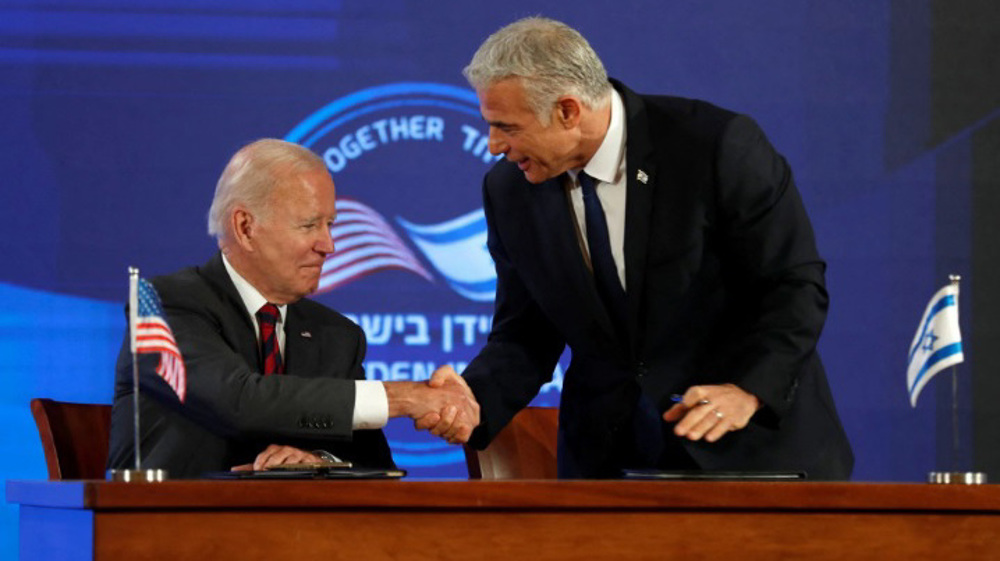
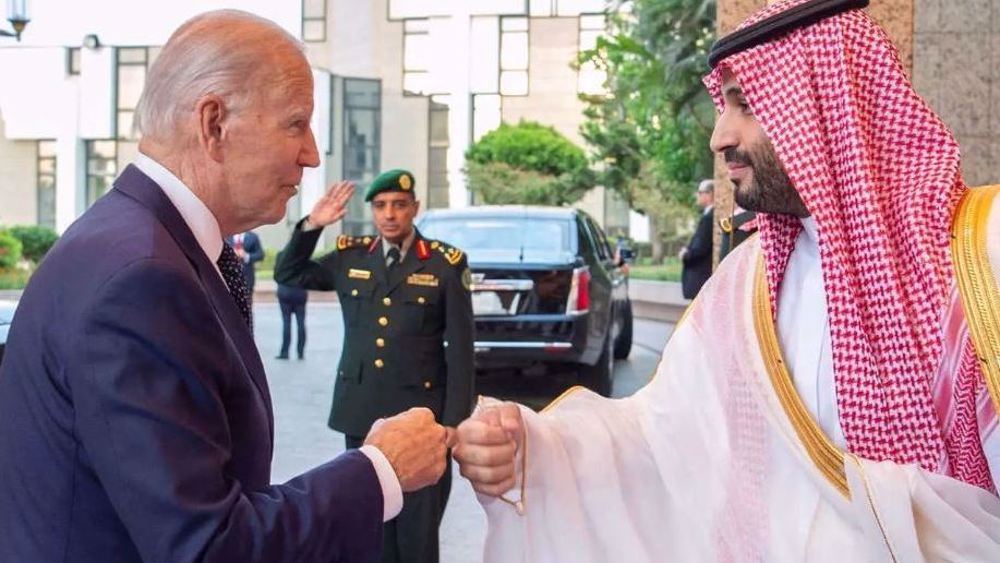






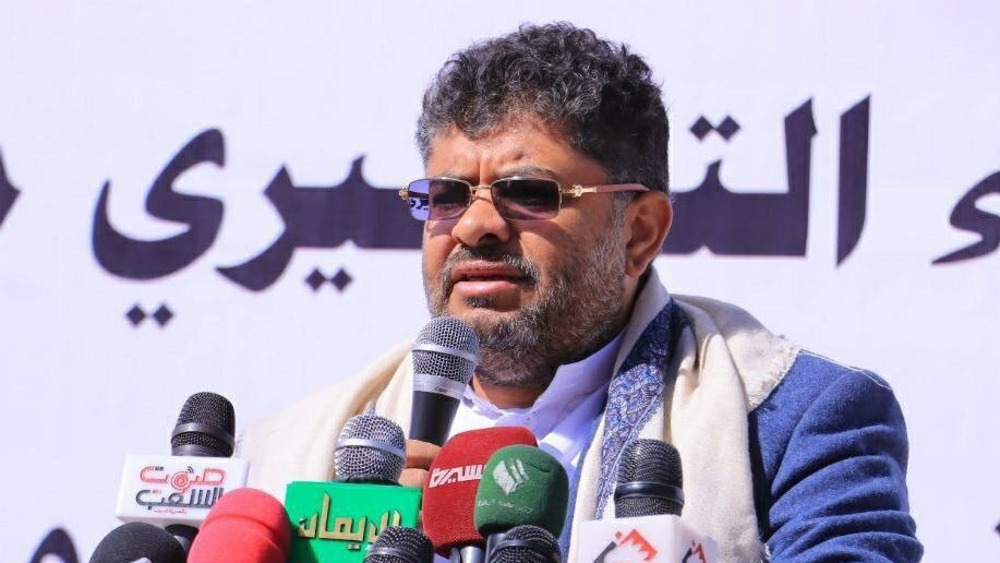
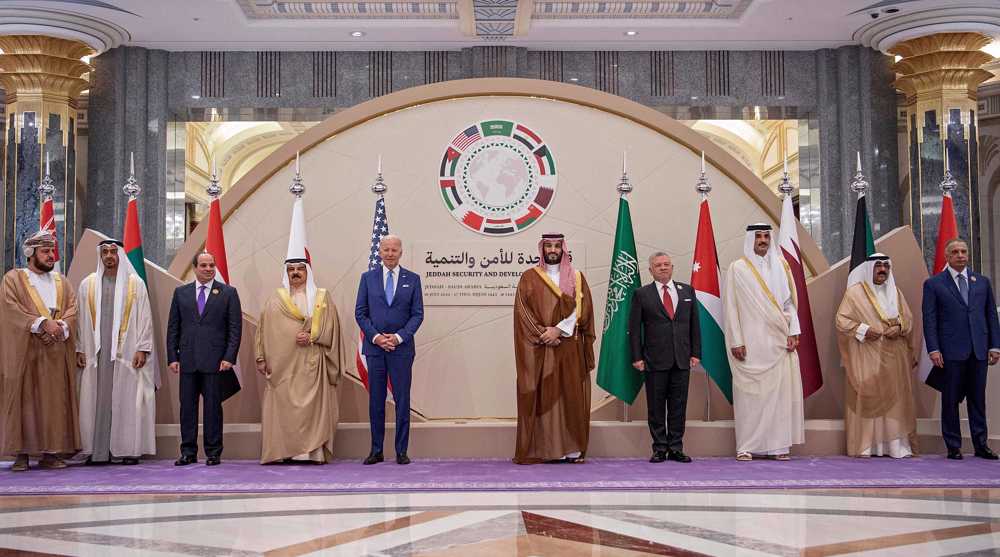
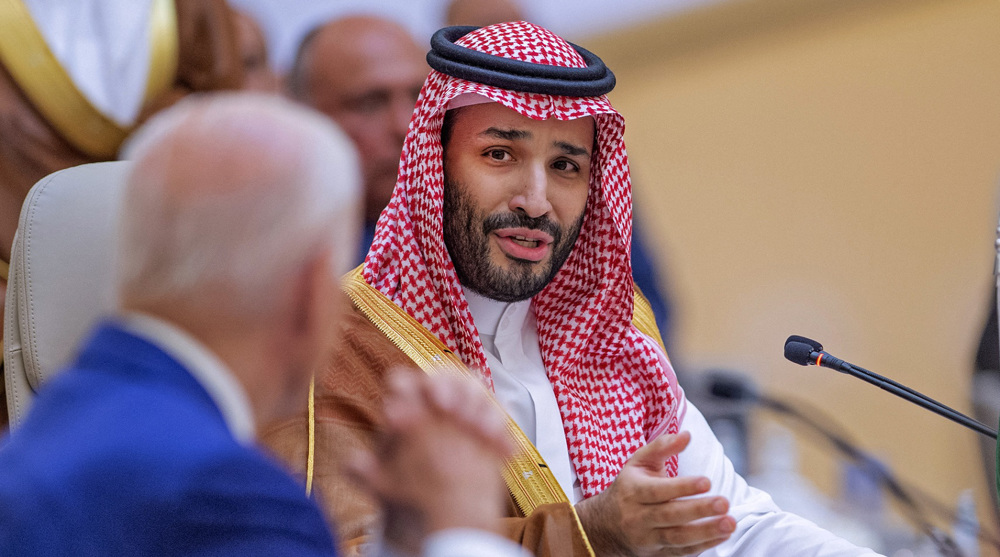
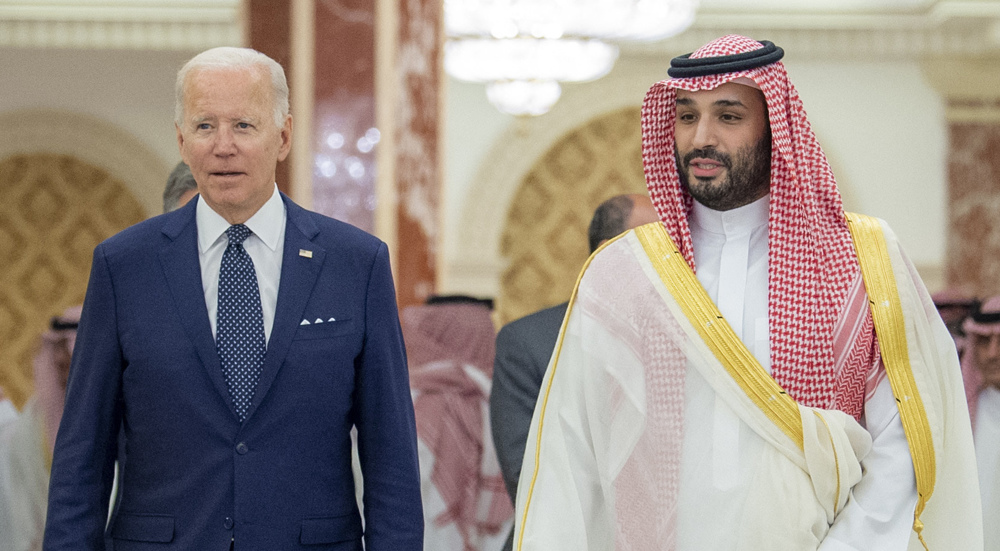

 This makes it easy to access the Press TV website
This makes it easy to access the Press TV website